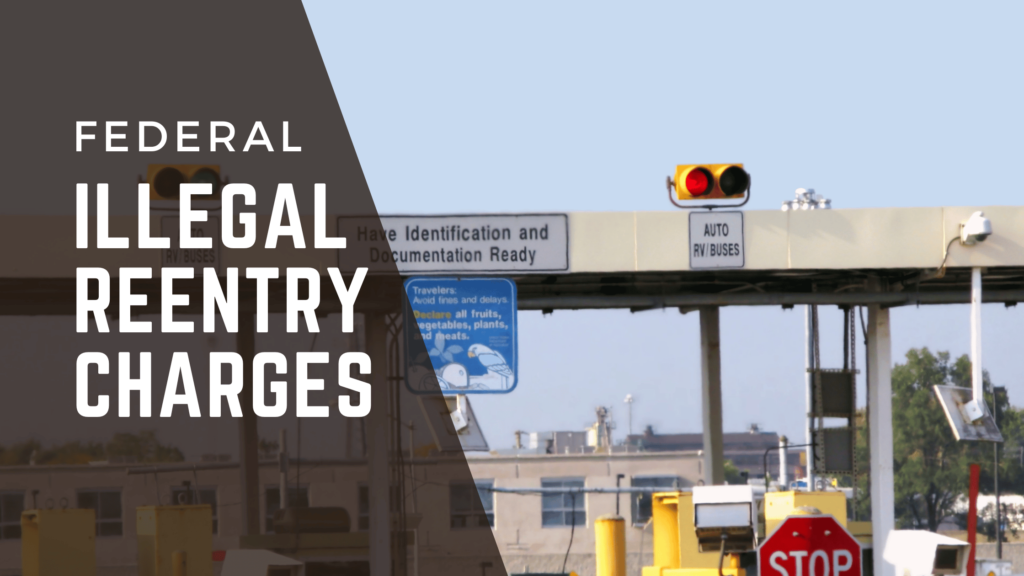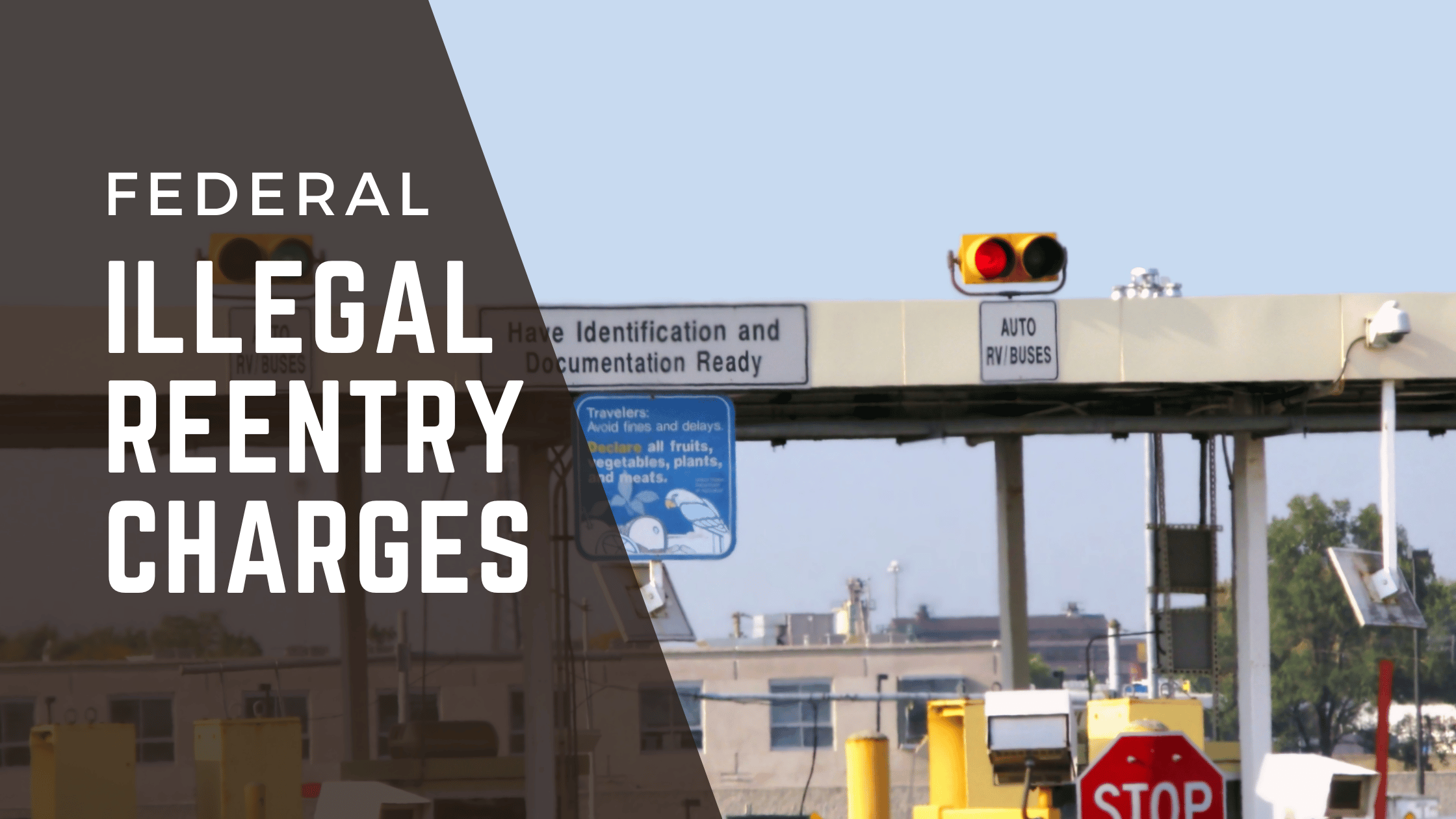Illegal entry and reentry prosecution is now a priority through presidential executive order.
8 U.S.C. § 1326—the federal statute addressing illegal reentry—allows federal prosecutors to, in some cases, send someone to prison just for illegally reentering the United States after having been removed.
But what does this statute entail, and what are the potential implications for those charged under it? Here’s what you need to know.

Table of Contents
What is Illegal Reentry under 8 U.S.C. § 1326?
Illegal reentry occurs when an alien previously denied admission, deported, excluded, or removed from the United States enters or attempts to enter the country again without proper permission. Specifically, the statute criminalizes the following:
- An alien who has been deported or removed and subsequently reenters, attempts to reenter, or is found in the United States.
- An alien who has done so without receiving the express consent of the Attorney General or without being exempted from requiring prior approval under immigration law.
Penalties for Illegal Reentry
The penalties for federal illegal reentry vary greatly depending on the facts of your particular case:
- The default punishment for illegal reentry is a maximum of two (2) years and a possible fine.
However, depending on your criminal history, that punishment range changes:
- If you have three or more misdemeanors for drugs, crimes against the person, or both, or a felony (not an aggravated felony, you can get up to ten (10) years in prison.
- If you have a prior conviction for an aggravated felony, you could face up to twenty (20) years in prison.
- If you have been excluded from the US for a terrorist-based reason, you face up to ten (10) years in prison.
If you were previously removed from the US before finishing a sentence under 8 s 1231(a)(4)(B), you face up to ten (10) years in prison.
The Prosecution of These Cases
Under the current presidential administration, enforcing immigration laws, including illegal reentry, has been a priority. The numbers are telling. According to the United States Sentencing Commission, out of 64,124 cases reported in FY 2023, 18,106 involved immigration offenses, and a staggering 71.1% of those cases were illegal reentry charges. (For more statistics like this, you can click here)
This sharp focus on prosecuting immigration crimes reflects an ongoing political and legal emphasis on border security and the perceived risks of unauthorized migration.
Unfortunately, defendants in illegal reentry cases often find themselves in difficult situations. Many of those charged under 8 U.S.C. § 1326 have little or no history of violent criminal behavior. Sometimes, individuals who return to the United States seek to reunite with their families, work to support loved ones or escape dire circumstances in their home countries. Nonetheless, even a minor or decades-old criminal conviction can be used as justification for aggressive prosecution.
Our lawyers have over forty-five (45) years of experience. You can meet them here.
Real-World Impacts of Illegal Reentry Charges
Facing an illegal reentry charge is an ordeal with life-altering consequences. Here are some key concerns for those accused of this crime:
- Federal Prison Time: A conviction may result in months or even years in federal prison, depending on various factors such as prior convictions or criminal history.
- Separation from Family: For those who reenter to be with family, a conviction can lead to further separation, exacerbating personal and emotional challenges.
- Limited Defense: Many prosecuted under 8 U.S.C. § 1326 face steep legal hurdles, with prosecutors often relying on minimal evidence (such as old or weak criminal convictions) to make their case.
Defending Against Illegal Reentry Charges
While defending against these charges can be challenging, it is not impossible. Experienced legal professionals may explore a range of strategies, such as:
- Weak Evidence Arguments: Challenging the sufficiency or relevance of prior convictions to justify reentry charges.
- Application for Relief: Demonstrating that the individual sought or obtained proper authorization to reenter when applicable.
- Humanitarian Concerns: Highlighting compelling circumstances that underscore the defendant’s reasons for returning.
- Cooperation with Government: If you have critical information about other federal crimes you may be able to negotiate a dismissal of your case or a more favorable punishment.
Final Thoughts
The crime of illegal reentry under 8 U.S.C. § 1326 emphasizes the complex, often punishing dimensions of immigration law. For many individuals charged under this statute, deportation or exclusion from the United States is not merely a legal issue—it’s a profound personal challenge tied to their families and aspirations.
If you or a loved one is facing an illegal reentry charge, it’s crucial to seek experienced legal counsel immediately to explore your options and rights. Legal professionals can help you tell your side of the story and ensure all available defenses are considered.
Understanding the law is the first step, and taking action is next. You can call us at 301.513.7832 to speak to an attorney immediately. You can also fill out our contact form here, and an attorney will message you within ten minutes.



